Top 5 Amazing Benefits of Coconut Oil for Hair | How to Use it for Hair Growth?
Evidence Based
All the information in this blog post is accurate, trustworthy, scientifically based and has been written and fact-checked by our experts and doctors.
Our licensed nutritionists and dietitians are committed to being objective, unbiased and honest, presenting all sides of the argument.
This article includes scientific references in brackets, which are clickable links to research papers from reputable academic organizations.

Coconut oil is a popular natural remedy that is often used for hair care, and many people believe it can be beneficial for hair growth. While there is limited scientific evidence to support the direct link between coconut oil and hair growth, it does offer several potential benefits for overall hair health.
Benefits of Coconut Oil for Hair Health:
1. Coconut Oil Moisturizes Hair:
Coconut oil is an excellent natural moisturizer for the hair. It can penetrate the hair shaft, reducing protein loss and keeping the hair strands well-hydrated. Dry, brittle hair is more prone to breakage, and keeping it moisturized can help maintain its length.
2. Coconut Oil Strengthens Hair:
The fatty acids in coconut oil, particularly lauric acid, can help strengthen hair and reduce hair breakage. Stronger, healthier hair is less likely to break and may appear to grow faster.
3. Coconut Oil Helps for a Healthy Scalp:
A healthy scalp is essential for hair growth. Coconut oil may have mild antibacterial and antifungal properties, which can help maintain a clean and healthy scalp, promoting optimal conditions for hair growth.
4. Coconut Oil Reduces Damage:
Applying coconut oil to your hair before washing can help reduce damage caused by the mechanical stress of combing or brushing. It can also act as a protective barrier against environmental damage.
5. Coconut Oil Improves Hair Texture:
Regular use of coconut oil may result in improved hair texture, making your hair look healthier and thicker.
[ Read: How to Use Coconut Oil to Reverse Grey Beard Naturally? ]
How to Use Coconut Oil for Hair?
While these potential benefits are promising, it's important to use coconut oil correctly for hair care:
1. Apply it in moderation:
Excessive use of coconut oil can lead to greasy hair, making it appear unclean. A small amount is usually sufficient.
2. Patch Test:
Before applying coconut oil to your hair and scalp, do a patch test to ensure you don't have any adverse reactions or allergies to it.
3. Preferably on Dry Hair:
Coconut oil can be applied to dry hair as a pre-shampoo treatment or left on for a short time before washing. Some people use it as an overnight treatment but proceed with caution, as it can be difficult to wash out completely, and excessive use may lead to greasy hair.
4. Individual Variation:
Not everyone's hair will respond the same way to coconut oil. It might work well for some people but not others.
5. Purity of Coconut Oil:
Determining the purity of coconut oil can be challenging, as many products on the market may be labeled as "pure" or "extra virgin" but can still be of varying qualities and may contain additives or impurities.
[ Also Read: Top 10 Benefits of Camphor and Coconut Oil ]
How to Identify Pure and High Quality Coconut Oil?
Here are some tips to help you identify pure and high-quality coconut oil:
1. Check the Label:
Look for a clear and transparent label that lists "100% pure coconut oil" or "100% extra virgin coconut oil" with no additional ingredients. Avoid products that list a long list of additives or preservatives.
2. Cold-Pressed or Expeller-Pressed:
High-quality coconut oil is often labeled as "cold-pressed" or "expeller-pressed." These methods of extraction typically retain more of the natural nutrients and flavors of the coconut.
3. Color and Aroma:
Pure coconut oil is usually colorless or has a very light, pale yellow color. It should have a pleasant, mild coconut aroma. If the oil has a strong, artificial, or off-putting odor, it may not be pure.
4. Solid at Room Temperature:
Coconut oil is solid at temperatures below 76°F (24°C). If your coconut oil is liquid at room temperature, it may be mixed with other oils or not entirely pure.
5. Certifications:
Look for certifications such as "organic" or "non-GMO," as these can be indicators of a higher quality product. Organic certification means that the coconuts were grown without synthetic pesticides or fertilizers.
6. Transparency:
Reputable brands often provide transparency about the sourcing and processing of their coconut oil. They may share information about their supply chain and production methods on their websites.
7. Reputation and Reviews:
Research the brand and read product reviews to see what other consumers have experienced with the product. A well-established brand with positive reviews is often a good sign of quality.
8. Storage Instructions:
Pure coconut oil may come with storage instructions, often recommending storage at or below room temperature to maintain its solid form.
9. Buy from Reputable Sources:
Purchase coconut oil from trusted retailers, health food stores, or directly from the manufacturer's website if possible. This reduces the risk of buying counterfeit or adulterated products.
How Often Must We Use Coconut Oil on Hair?
The frequency at which you should apply coconut oil to your hair depends on your hair type, condition, and personal preferences.
There is no one-size-fits-all answer, but here are some general guidelines to consider:
1. For Dry or Damaged Hair:
If your hair is dry, damaged, or prone to frizz, you can apply coconut oil as a deep conditioning treatment. Typically, once a week should be sufficient. You can leave the oil on your hair for several hours or overnight and then wash it out. This helps replenish moisture and reduce breakage.
2. For Normal Hair:
If your hair is in good condition and you want to maintain its health and shine, you can use coconut oil less frequently, such as every 2-4 weeks. A lighter application can be left on for a shorter period before washing.
3. For Curly or Coarse Hair:
Curly and coarse hair types tend to benefit from more frequent coconut oil treatments, as they can be naturally drier. You might consider applying coconut oil every 1-2 weeks.
4. For Thin or Oily Hair:
If you have thin or oily hair, use caution with coconut oil, as it can weigh down the hair and make it appear greasy. In such cases, you might choose to apply it less often, perhaps once a month.
5. For Daily Use:
Some people choose to use a small amount of coconut oil as a leave-in conditioner or hair serum on a daily basis. If you do this, it's important to use a minimal amount to avoid making your hair overly greasy.
6. For Scalp Health:
You can also use coconut oil for scalp health. Applying a small amount to your scalp and massaging it in can help with issues like dandruff or a dry, itchy scalp. You can do this 1-2 times per week or as needed.
It's crucial to personalize your approach to match your hair's needs and your lifestyle.
Some additional tips for using coconut oil for hair health:
- Heat the coconut oil slightly before application to make it easier to spread.
- If you have very dry or damaged hair, you can leave the coconut oil on for a longer time or even overnight.
- Focus on the ends of your hair, as they tend to be the most damaged.
- Use a sulfate-free shampoo to effectively remove the oil during washing.
Potential Drawbacks of Using Coconut Oil:
While coconut oil is a popular and versatile natural product for hair care, it may not be suitable for everyone, and there are some potential drawbacks and disadvantages to consider:
1. Greasy or Heavy Hair:
Coconut oil is a heavy oil, and for some hair types, especially thin or naturally oily hair, it can make the hair look greasy or weigh it down. Using too much or not washing it out thoroughly can lead to this issue.
2. Allergic Reactions:
Some individuals may be allergic to coconut oil. It's essential to perform a patch test on a small area of skin before applying coconut oil to your hair to check for any allergic reactions.
3. Clogging Pores:
If coconut oil is used on the scalp and isn't properly rinsed out, it may clog hair follicles and lead to issues like dandruff, an itchy scalp, or acne on the scalp, especially if you have a sensitive scalp.
4. Excessive Protein:
While coconut oil can help strengthen hair, excessive use can lead to a protein overload, causing hair to become stiff and brittle. It's important to balance protein treatments with moisturizing treatments.
5. Sticky Residue:
If not properly washed out, coconut oil can leave a sticky residue on the hair, making it difficult to style.
6. Heat Damage:
Using coconut oil as a heat protectant is a common practice, but it may not provide as much protection as specialized heat protectant products. Excessive heat styling can still damage your hair even if you apply coconut oil.
7. May Not Work for All Hair Types:
While many people benefit from coconut oil, it may not be the best choice for everyone. Haircare is highly individual, and what works for one person may not work for another.
8. Color-Treated Hair:
If you have color-treated hair, using coconut oil may cause the color to fade faster. It can strip the color, especially if used frequently or left on for extended periods.
9. Difficult to Remove:
Coconut oil can be challenging to completely wash out of the hair, especially if applied in excessive amounts or left on for a long time. Incomplete removal may lead to hair that looks greasy or has a sticky feeling.
To avoid these potential drawbacks, it's important to use coconut oil in moderation, apply it as a deep conditioning treatment rather than a daily hair product, and ensure thorough rinsing during washing. If you experience any adverse effects or your hair doesn't respond well to coconut oil, consider alternative products or consult with a dermatologist or hair specialist for personalized recommendations.
Also Read the Articles:
Disclaimer: The information provided on this page is not a substitute for professional medical advice, diagnosis, or treatment. If you have any questions or concerns about your health, please talk to a healthcare professional.
 Evidence Based
Evidence Based
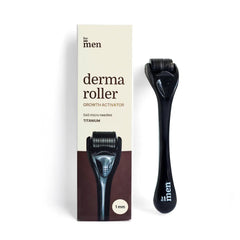
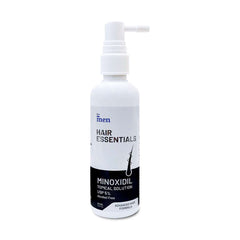
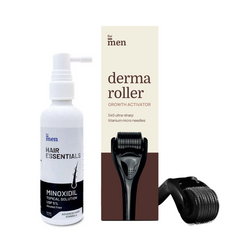
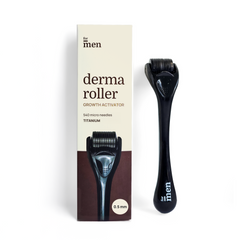
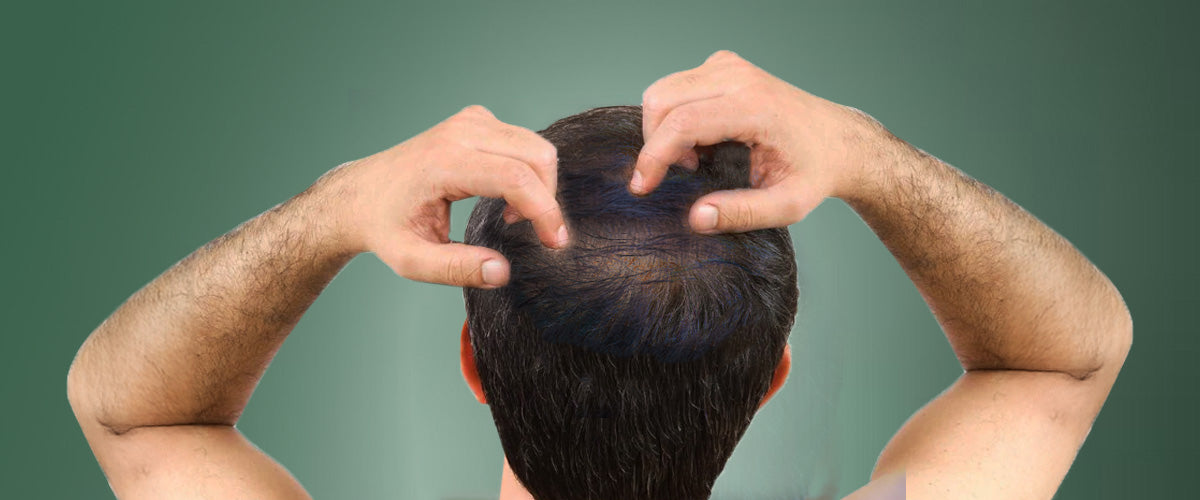


Leave a comment